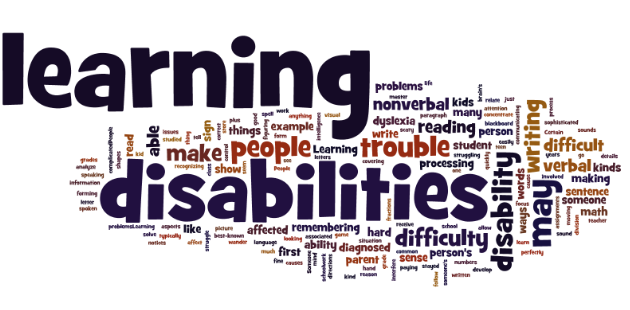Dealing with a Learning Disorder

It may last a lifetime, but living with a learning disability doesn’t have to hold you back.
In every case, a person with a learning disability needs help to identify their areas of weakness, and then use their strengths to compensate. This is where outside support and assistance comes in, and not just in the form of professionals. Everyone from family to friends, teachers, tutors, work colleagues and employers can help. How? By being aware of the person’s learning disability, and any coping strategies that can help them reach their true potential.
If you’re living with a learning disability and still in education, it’s vital that you make your school or college aware of your situation. By talking openly about your needs, they can look into ways to tackle any difficulties you’re having.
Many people with learning disabilities benefit from supplementary education. This can be tailored to suit your individual needs, but ranges from extra tuition to simply creating a home environment where problems at school or college can be discussed. Even being encouraged to read or write outside of the classroom or lecture hall can be a big benefit.
By becoming aware of your strengths and weaknesses, it’s possible to fulfil your potential in all areas of life. The same goes for anyone caring for somebody with a learning disability. What matters is that you constantly review the situation, and remain aware of any source of help, encouragement and support that’s available.
Supporting yourself
If you’re living at home with a learning disability and you’re keen to make the most of your independence, it’s vital you learn the basic skills to take care of yourself. This begins by talking to your parent(s) or carer, and considering the following areas:
Living alone – If you’re thinking about moving out, is suitable accommodation available? Will anyone be looking out for you? Do you need help with specific tasks, such as dealing with a central heating system?
Domestic duties – Are you able to keep the place clean and secure?
Preparing meals – Can you cook for yourself? Are you aware of basic standards of hygiene and safety? Do you need help with grocery shopping?
Money matters – Are you financially independent? Can you live on a budget and pay bills on time?
Getting around – Are you confident using public transport? Are you able to get yourself from A to B without problems? Alternatively, are you equipped with strategies for dealing with difficulties i.e. carrying a mobile phone with the number of someone who can help you out?
The prospect may seem daunting for some, but over time and with support it’s possible for anyone with a learning disability to achieve a degree of independence and freedom that suits them.





